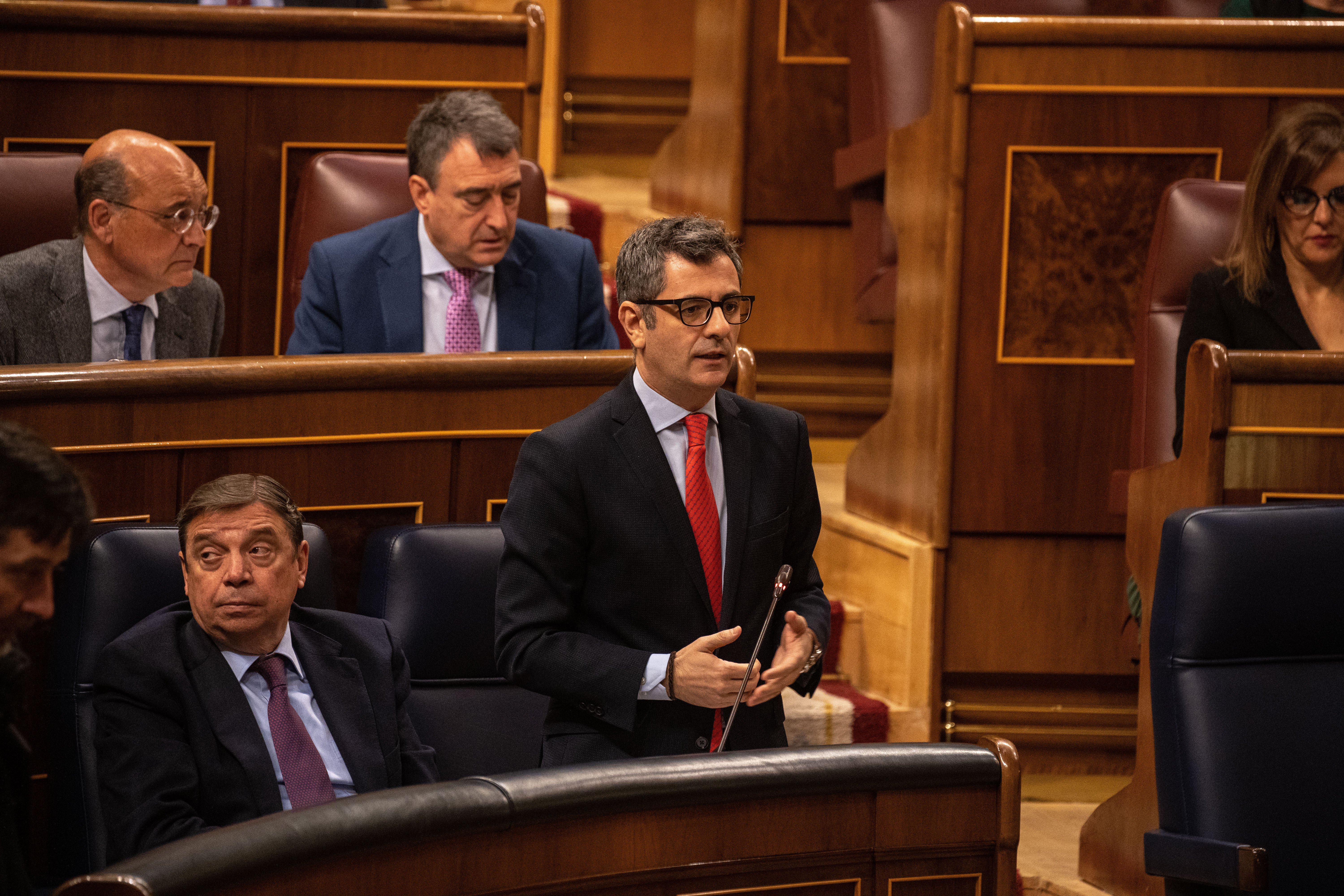As far as the Pedro Sánchez government is concerned, it is 'case closed' on the Pegasus espionage affair, the spyware scandal dominated by the Catalangate case involving surveillance of at least 60 pro-independence politicians and activists, probably by the National Intelligence Centre (CNI). Today, in response to a question from the Basque Nationalist Party, the Spanish minister for the prime minister's department, Fèlix Bolaños, affirmed that PM Pedro Sánchez "has complied with all the commitments to clarify all the facts that we learned of through The New Yorker". He then detailed that "action was taken though an internal inquiry within the CNI itself, an ex officio investigation by the Spanish Ombudsman was launched, we collaborated with all judicial proceedings and Congress's Official Secrets committee was called, when it had not even been constituted till then". And the minister concluded: "The democratic commitment of the government is unquestionable and, in fact, the policies of democratic regeneration are already bearing fruit" referring to the 2022 ranking published by The Economist, which showed that, after briefly finding itself on the slippery slope of 'flawed democracies', Spain has returned to the fold of those with full democratic credentials.
In the parliamentary question session, the Basque Nationalist leader in Congress, Aitor Esteban, complained that "it would be a mistake to falsely close this file". In fact, he denounced that the Spanish government is abandoning one of the commitments made by Pedro Sánchez in response to the espionage scandal, which is the reform of the Spanish law regulating the judicial oversight over the CNI, which, according to the government executive, had to "strengthen the guarantees of control and ensure maximum respect for people's political and individual rights". In this sense the Basque politician recalled that the modification does not appear in the legislative plan for 2023 which the minister himself presented. Félix Bolaños avoided any straight answer to the question. Sources from his department consulted by ElNacional.cat passed the hot potato to the defence ministry, on which the CNI depends.
In Congress, Felix Bolaños asserts that the Spanish government has met its obligations in Pegasus - but Aitor Esteban can't find the CNI law reform in the legislative calendar.
Pedro Sánchez's promise
In relation to the Pegasus case, which broke in April 2022, the prime minister undertook to reform the law regulating the judicial oversight of the CNI, along the same lines as the recommendations made by the Spanish Ombudsman. This undertaking was made in the midst of the scandal of mass espionage using Pegasus spyware against scores of people in Catalan pro-independence circles, and after it also emerged that Sánchez himself and his defence and interior ministers, Margarita Robles and Fernando Grande-Marlaska, had also been victims of the spyware in a separate case in which the involvement of Moroccan intelligence is widely suspected. It was in this context that the head of the Spanish executive presented a defence of political and individual rights.

